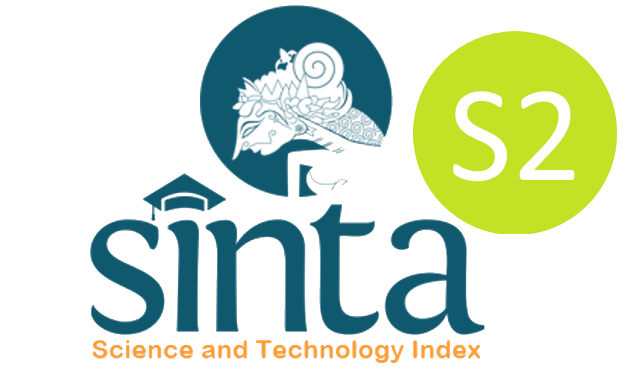Publication Ethics
Pscyhological Research on Urban Society (PRoUSt) is an open access peer-reviewed journal that follows the ethical guidelines of COPE's core practices on international scholarly publishing. PRoUSt adapts COPE’s core practices to meet high quality standard of ethics for publisher, editors, authors, and reviewers. As an essential issue, publication ethics needs to be explained clearly to improve the quality of the research worldwide. In this part, we explain the standard for editors, authors, and reviewers. In addition, publisher don’t have right to interfere with the integrity of the contents and only support to publish in timely manner.
Allegations of Misconduct
Allegations of misconduct may happen during pre-publication and post-publication processes. Research misconduct may take the forms of data falsification, data fabrication, plagiarism, undisclosed conflict of interest, and peer-review manipulation.
In cases of allegations of misconduct, the Editorial Board will use the COPE’s guidelines in helping them addressing the misconduct fairly. A submitted manuscript suspected of misconduct will be rejected during pre-publication process. In the case where the manuscript has been published and being suspected of misconduct, a post-publication changes in the form of correction, retraction, or expression of concern linked to the original article will be published by the Editorial Board.
Duties of Authors
(based on COPE’s core practices on international scholarly publishing)Reporting Standards
Authors of reports of original research should present an accurate account of the work performed as well as an objective discussion of its significance. A manuscript should contain sufficient detail and references to permit others to replicate the work. Fraudulent or knowingly inaccurate statements constitute unethical behavior and are unacceptable.
Data Access, Retention and Reproducibility
Authors might be asked to provide the raw data in connection with the manuscript for editorial review, and should be prepared to provide public access to such data, if practicable, and should, in any event, be prepared to retain such data for a reasonable time after publication. The authors are responsible for data reproducibility.
Originality and Plagiarism
The authors should ensure that they have written entirely original works, and if the authors have used the work and/or words of others that this has been appropriately cited or quoted.
Multiple, Redundant or Concurrent Publication
An author should not, in general, publish manuscripts describing essentially the same research in more than one journal or primary publication. Submitting the same manuscript to more than one journal constitutes unethical publishing behavior and is unacceptable.
Acknowledgment of Sources
Proper acknowledgment of the work of others must always be given. Authors should cite publications that have been influential in determining the nature of the reported work.
Authorship and Contributorship of the Article
Authorship should be limited to those who have made a significant contribution on the conception, design, execution, or interpretation of the reported study, drafting or revising the article critically for important intellectual content, and final approval of the version to be published. All those who have made significant contributions should be listed as co-authors. Where others have participated in certain substantive aspects of the research project, they should be acknowledged or listed as contributors. The corresponding author should ensure that all appropriate co-authors and no inappropriate co-authors are included in the manuscript and that all co-authors have seen and approved the final version of the manuscript and have agreed to its submission for publication. Order of authors should be a joint decision of the co-authors. Whenever possible, make these decisions before starting to write up the project. Some groups list authors alphabetically, sometimes with a note to explain that all authors made equal contributions to the study and the publication. If you do so, make sure it is clear to the editor in the cover letter. Change of authors order is not possible after the publication.
Disclosure and Conflicts of Interest
All authors should disclose in their manuscript any financial or other substantive conflicts of interest that might be construed to influence the results or interpretation of their manuscript. All sources of financial support for the project should be disclosed.
Fundamental Errors in Published Work
When an author discovers a significant error or inaccuracy in the published work, the author should promptly notify the journal editor or publisher and cooperate with the editor to retract or correct the paper.
Duties of Editors
(based on COPE’s core practices on international scholarly publishing)Publication Decisions
The editor of PRoUSt is responsible for deciding which of the articles submitted to the journal should be published. The validation of the work in question and its importance to researchers and readers must always drive such decisions. The editors may be guided by the policies of the journal's editorial board and constrained by such legal requirements as shall be enforced not to conduct libel, copyright infringement, and plagiarism. The editors may confer with other editors or reviewers in making this decision.
Complaints and Appeals
PRoUSt has a clear procedure for handling complaints against the journal, Editorial Staff, Editorial Board, or Publisher. The complaints will be clarified to the respective person concerning the claim. The scope of complaints includes anything related to the journal management (i.e., editorial process, found citation manipulation, unfair editor/reviewer, peer-review manipulation). The complaint cases will be processed according to the COPE guideline. The complaint cases should be sent by email to proust@ui.ac.id.
Fair play and Confidentiality
An editor evaluates manuscripts for their intellectual content without regard to race, gender, sexual orientation, religious belief, ethnic origin, citizenship, or political philosophy of the authors.
The editor and editorial staff are prohibited from disclosing any information about a submitted manuscript to anyone other than the corresponding author, reviewers, potential reviewers, other editorial advisers, and the publisher, as appropriate.
Disclosure and conflicts of interest
Unpublished materials disclosed in a submitted manuscript must not be used in an editor's own research without the express written consent of the author.
Duties of Reviewers
(based on COPE’s core practices on international scholarly publishing)Contribution to Editorial Decisions
Peer reviewer assists the editor in making editorial decisions and through the editorial communications with the author may also assist the author in improving the manuscript.
Promptness
Any selected referee who feels unqualified to review the research reported in a manuscript or knows that its prompt review will be impossible should notify the editor and excuse him or herself from the review process.
Confidentiality and Standards of Objectivity
Any manuscripts received for review must be treated as confidential documents. They must not be shown to or discussed with others except as authorized by the editor. Reviews should be conducted objectively. Personal criticism of the author is inappropriate. Referees should express their views clearly with supporting arguments.
Acknowledgment of Sources
Reviewers should identify relevant published work that has not been cited by the authors. Any statement that is derived from the previously reported observation or argument should be accompanied by relevant citations. A reviewer should also call to the editor's attention any substantial similarity or overlap between the manuscript under consideration and any other published paper of which they have personal knowledge.
Disclosure and Conflict of Interest
Privileged information or ideas obtained through peer review must be kept confidential and not used for personal advantage. Reviewers should not handle manuscripts in which they have conflicts of interest resulting from competitive, collaborative, or other relationships or connections with any of the authors, companies, or institutions connected to the manuscripts.
Plagiarism Screening
At the initial screening upon submission, all manuscripts will be checked for similarity index using Ithenticate program. The maximum limit of similarity score is 20%, and the percentage of each similarity unit score should not reach more than 3%.







